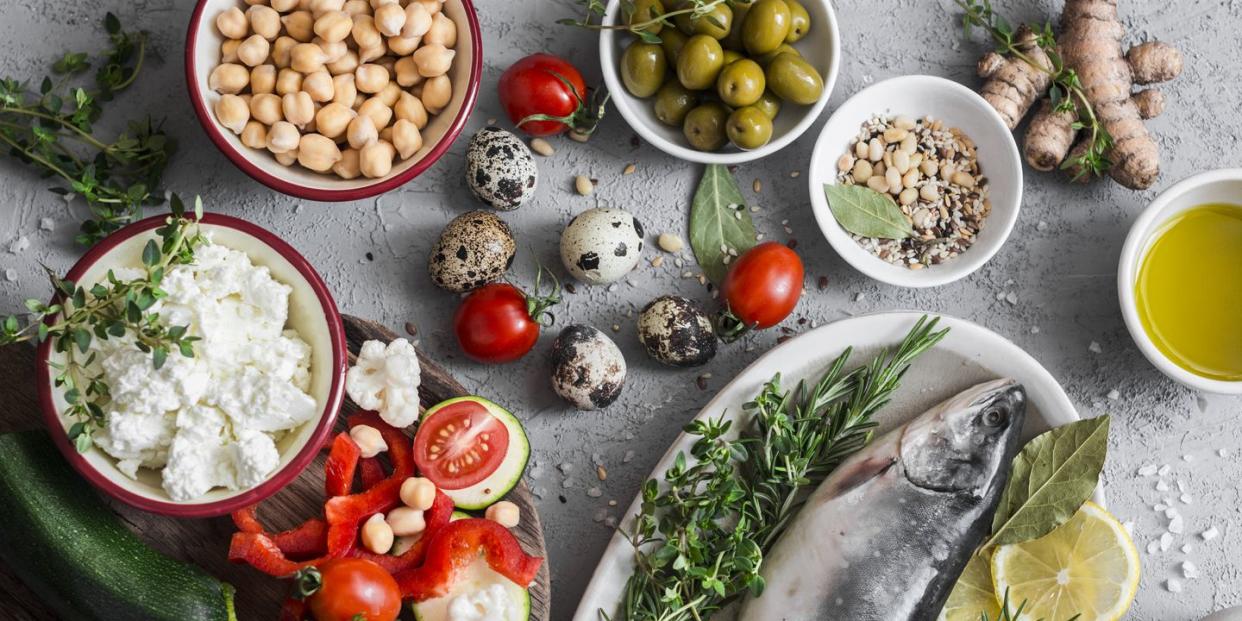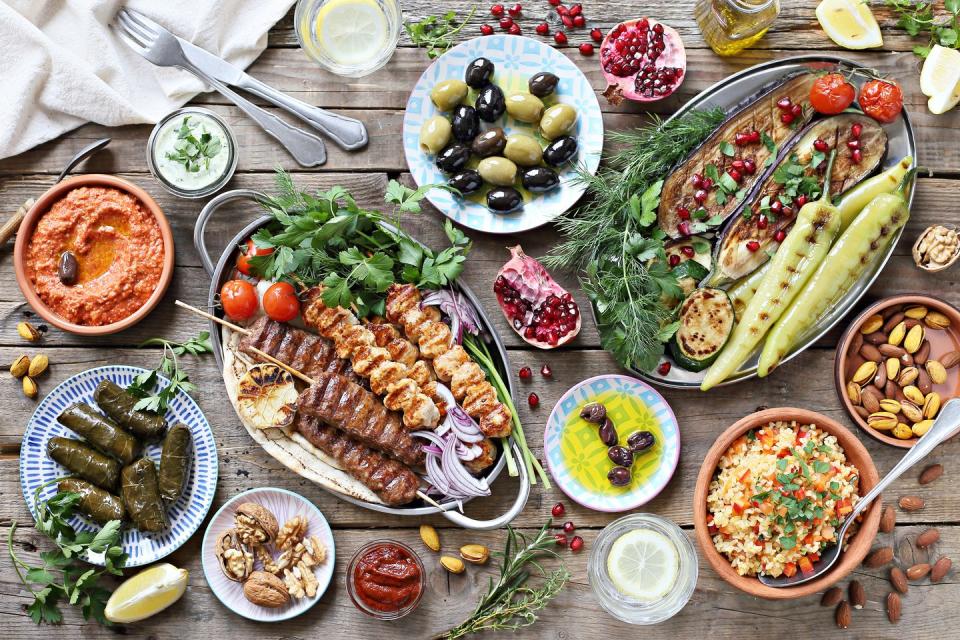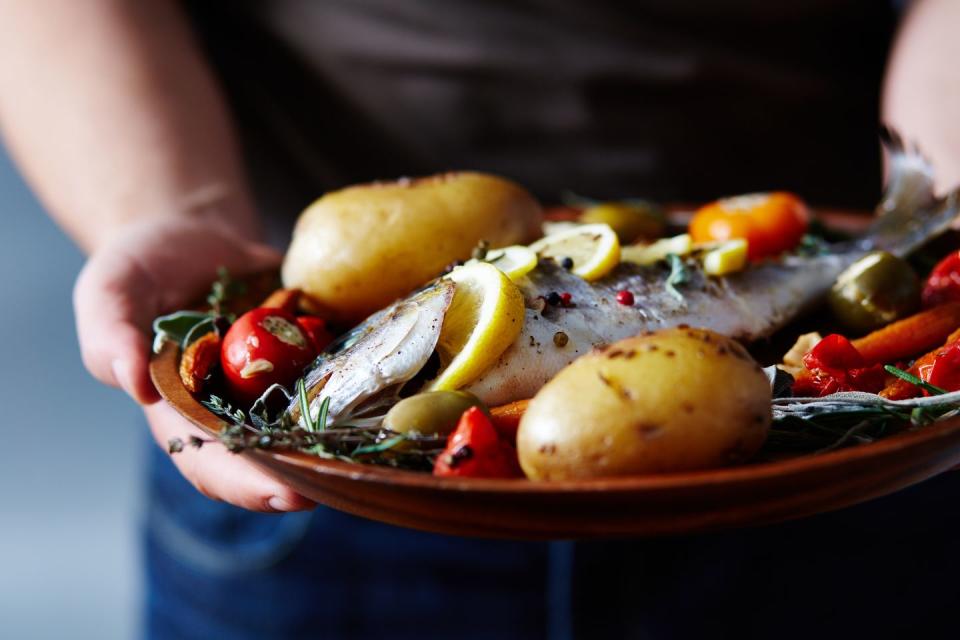A beginner’s guide to the Mediterranean diet

Often touted as one of the healthiest diets in the world and advocated for by health professionals, the Mediterranean diet has established itself as one of the best ways to eat.
Rich in fresh fruits and vegetables, legumes and healthful fats, it is associated with several health benefits, from protecting heart health to reducing the risk of a number of diseases.
Rebecca Traylen, Associate Nutritionist and Head of Nutrition at Probio7 looks at the benefits of the Mediterranean diet, and how to get started:
What is the Mediterranean diet?
The Mediterranean diet has been adapted from the dietary habits of countries neighbouring the Mediterranean Sea, mostly Greece and Southern Italy. It has since become a diet of interest due to its numerous health benefits.
The Mediterranean diet is characterised by:
High consumption of fat, primarily from extra virgin olive oil (EVOO) and nuts.
High consumption of vegetables, fruits, legumes, and unprocessed cereals.
Moderate intake of oily fish.
Moderate intake of fermented dairy products.
Moderate intake of alcohol (in the form of wine during a meal).
Rare consumption of red meat, sweets, processed foods, and dairy.
Mediterranean diet benefits
The Mediterranean diet has numerous health benefits.
It has been linked to several conditions, including increasing longevity, whilst decreasing the risk of cardiovascular disease, type 2 diabetes, obesity, metabolic syndrome, certain cancers, and cognitive impairment.
Is the Mediterranean diet good for gut health?
The Mediterranean diet encourages a high intake of fibre, which is beneficial for the gut. For example, wholemeal quinoa, pasta, and wraps are a great source of fibre.
Some types of fibre are classed as prebiotics, prebiotics act as a food source for our friendly bacteria helping them grow and thrive in our gut microbiome.
Oily fish contain Omega-3 which increases bacteria in the gut and has been shown to produce anti-inflammatory chemicals called short-chain fatty acids. Short-chain fatty acids in the gut play several vital roles in many of the body’s processes.
Mediterranean diet seven-day meal plan
Here is what a week on the Mediterranean diet might look like:
Monday
Breakfast – Greek yogurt with granola and a banana
Morning snack – Handful of almonds
Lunch – Chicken salad with a sprinkling of seeds
Afternoon snack – Fruit
Dinner – Vegetable lasagne
Tuesday
Breakfast – Wholemeal toast with 2 poached eggs
Morning snack – Handful of walnuts
Lunch – Quinoa and falafel salad with a balsamic vinaigrette
Afternoon snack – Roasted chickpeas
Dinner – Salmon and a bed of lentils

Wednesday
Breakfast – Mushroom and pepper omelette with parmesan cheese
Morning snack – Fruit
Lunch – Quinoa and chicken salad with a balsamic vinaigrette
Afternoon snack – Hummus with carrot and cucumber sticks
Dinner – Wholemeal pasta with a homemade capers and tomato sauce
Thursday
Breakfast – Greek yogurt with granola and a banana
Morning snack – Dried fruit
Lunch – Avocado on wholemeal toast
Afternoon snack – Olives
Dinner – Vegetable chili with quinoa
Friday
Breakfast – Poached eggs on wholemeal toast
Morning snack – Cashew nuts
Lunch – Vegetable chili with a sweet potato jacket
Afternoon snack – Fruit
Dinner – Sea bass with steamed broccoli and kale

Saturday
Breakfast – Greek yogurt with granola and fruit
Morning snack – Dates stuff with almond butter
Lunch – Tuna, feta, and olive salad with balsamic vinaigrette
Afternoon snack – Hummus with carrots and rice cakes
Dinner – Roasted vegetable and chickpea stew with wholemeal pasta
Sunday
Breakfast – Frittata with peas and feta
Morning snack – Roasted chickpeas and nuts
Lunch – Wholemeal pitta with falafels and hummus
Afternoon snack – Handful of berries
Dinner – Fish tacos
Mediterranean diet snack ideas
If you find yourself hungry between meals, there are plenty of Mediterranean diet-approved snacks:
Handful of nuts
Roasted chickpeas – roast chickpeas with paprika and cumin
Hummus with vegetable sticks
Olives
Tin of tuna with capers
Handful of berries
Dates stuffed with almond butter
Fruit and dried fruit
Last updated: 01-10-2020
You Might Also Like


